We are always saying “Happy New Year” at Spring Festival, “Happy Valentine's Day” on Valentine’s Day and “Happy Halloween” on Hallowmas. Could we say “Happy Tomb-sweeping Day” on Tomb-sweeping Day?
Generally, that wouldn’t be appropriate, because Tomb-sweeping Day, also called Qingming Festival, is a traditional Chinese occasion for people to visit and clean their ancestors' graves. It is an expression of their condolences and a spiritual reassurance for themselves.
However, Gao Wei, secretary-general of the China Folklore Society, says that Tomb-sweeping Day is not a melancholy holiday. It’s not only a way to honor loved ones, but also a chance for a spring break celebrating life, according to Gao.
How do Chinese people celebrate Qingming Festival?
1. Tomb sweeping
Tomb sweeping is regarded as the most important custom in Qingming Festival. Traditionally, the family burns replica versions of money and material goods as an offering at the grave, since it is believed that the deceased will still need all these things in the afterlife in Chinese culture. However, the custom has been greatly simplified today, especially in cities, where only flowers are presented to dead relatives.
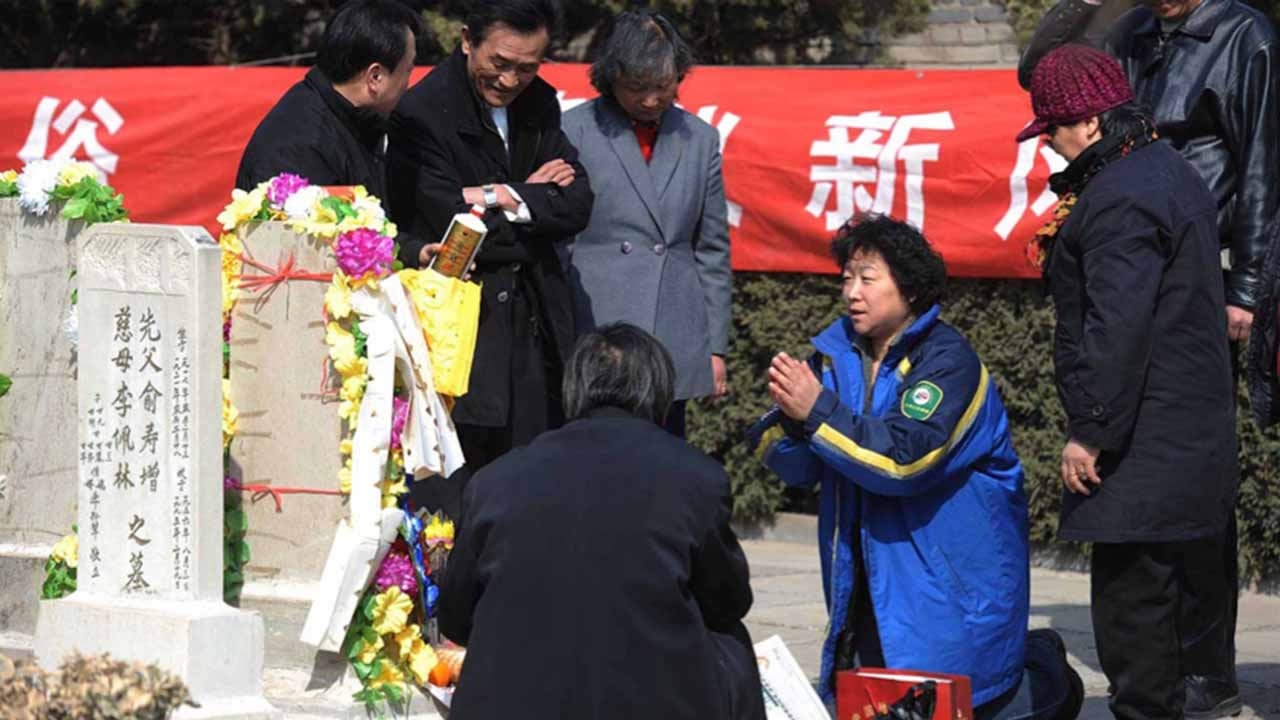
CFP Photo
2. Spring outings
In spring, everything in nature takes on a new look as trees and grass turn green, flowers blossom, and the sun shines brightly. It is a fine time to go out and appreciate the beauty of the world around us.
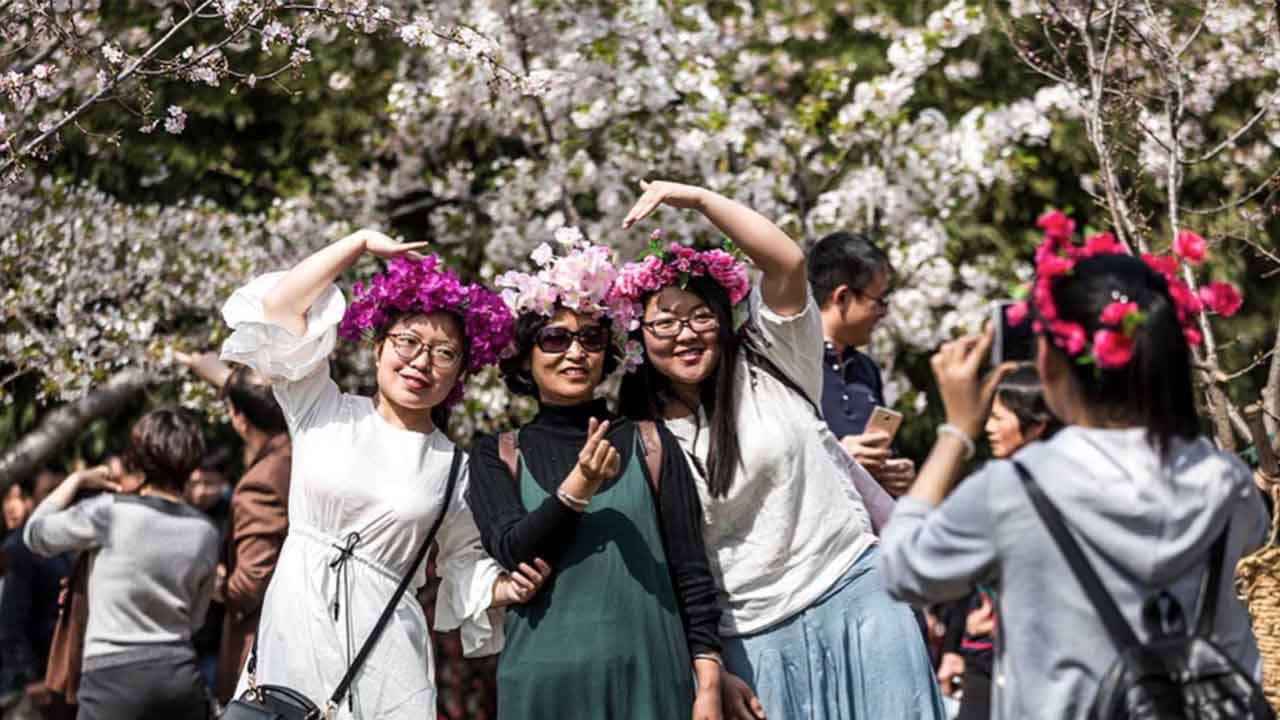
CFP Photo
3. Flying kites
During the festival, people fly kites not only during the day, but also at night. Many people believe that cutting the string and letting the kite float off freely into the sky exiles sickness and bad luck for the year ahead.
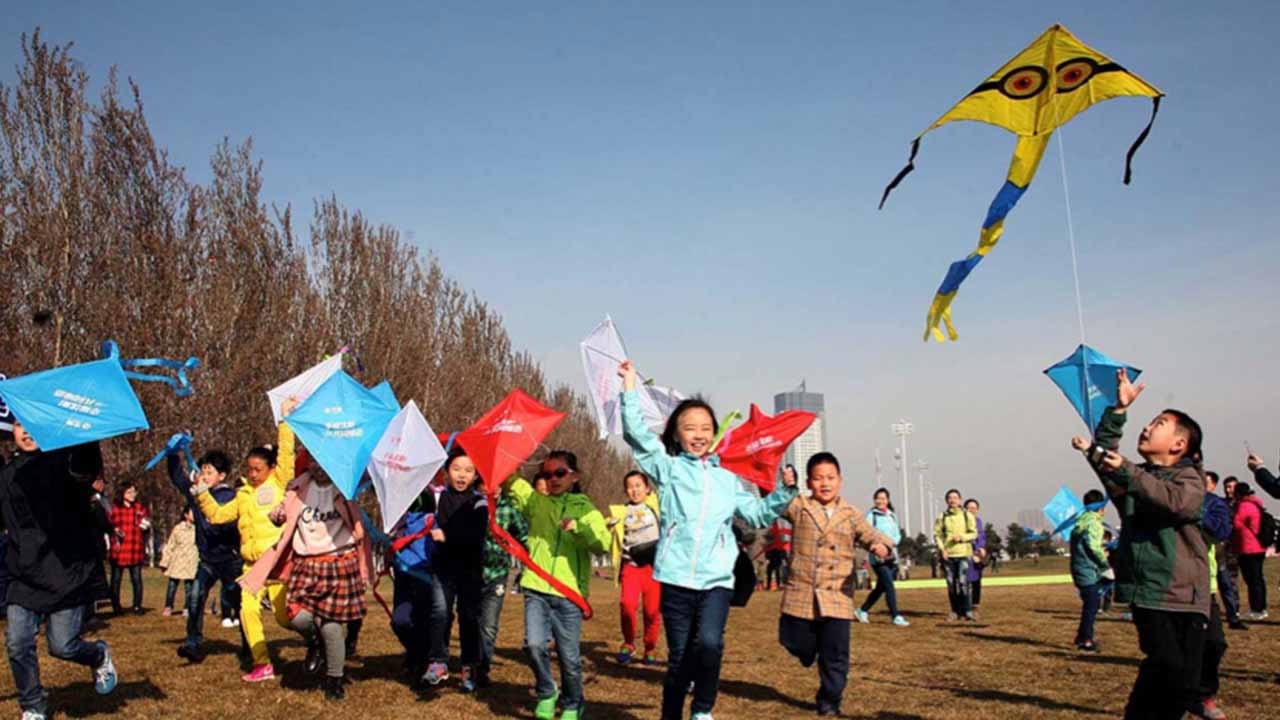
CFP Photo
4. Playing on swings
Swinging became a festival custom in the Southern and Northern Dynasties period (420-589). It is very popular among children, helping them develop bravery.
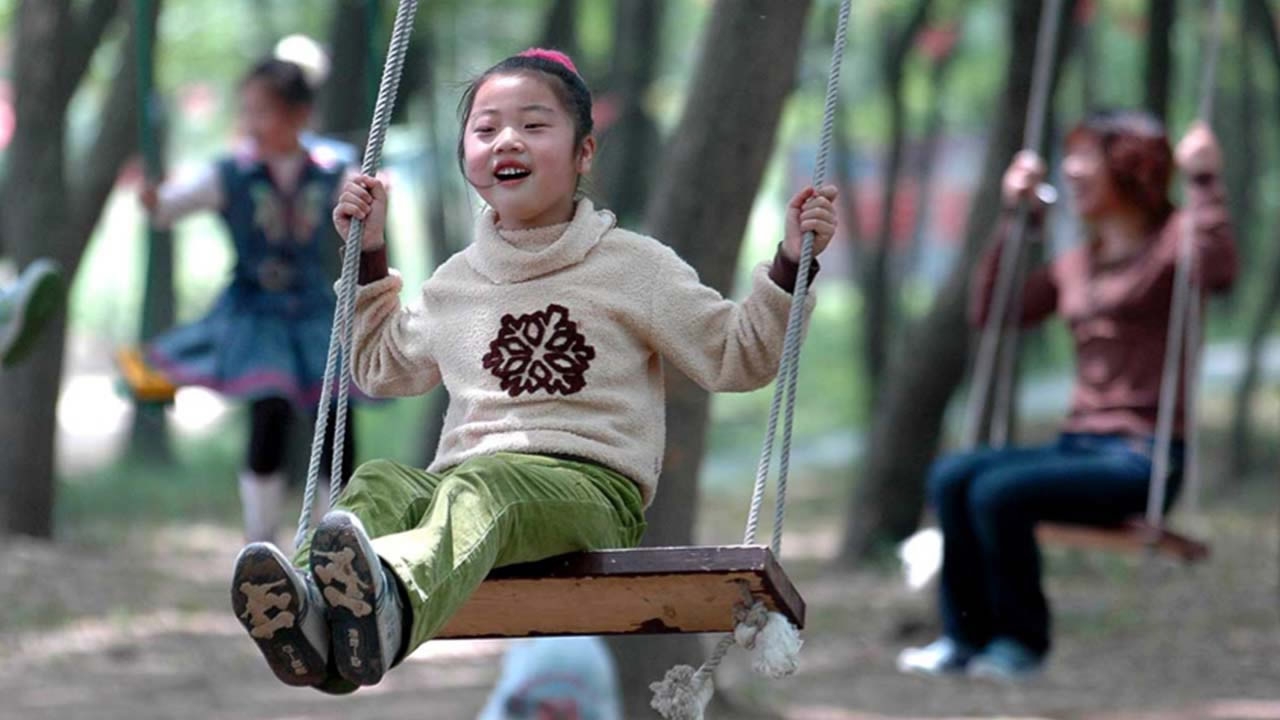
CFP Photo
5. Playing cuju
Cuju, an ancient Chinese ball game that involves kicking a ball though an opening into a net, is seen by FIFA as the earliest form of football. Ju is a rubber ball made of leather on the outside and stuffed tightly with feathers on the inside.
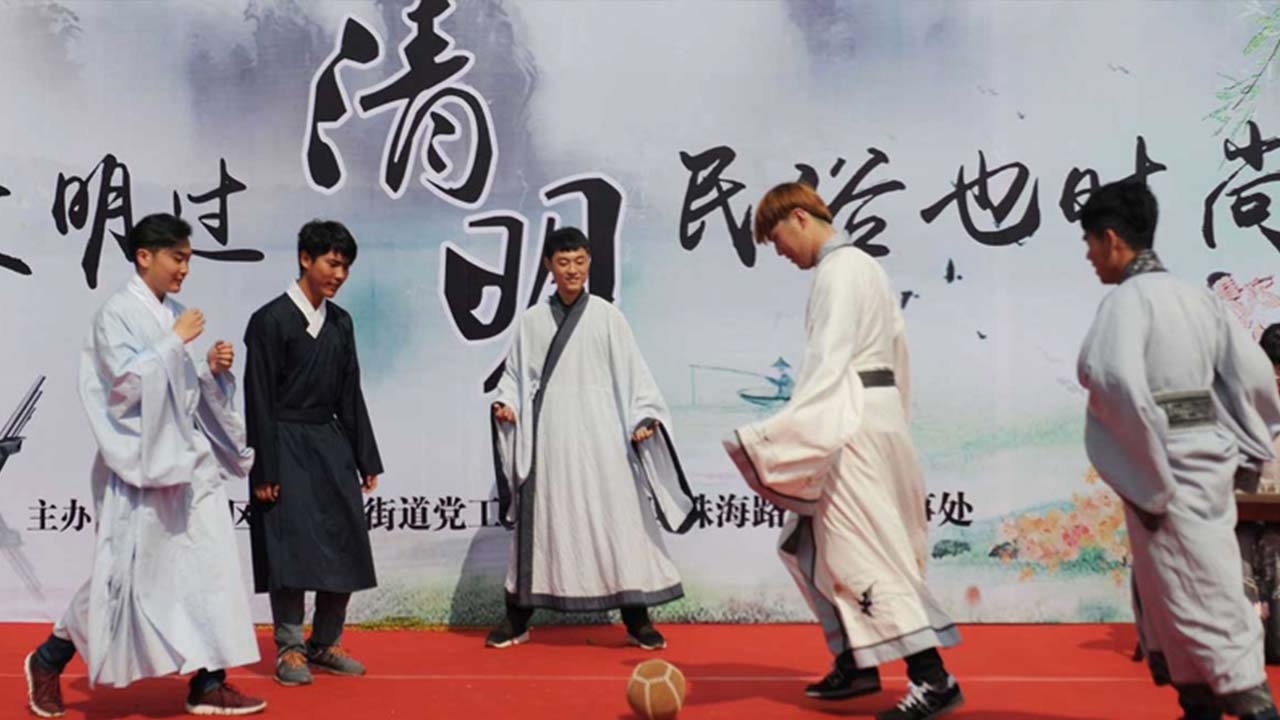
CFP Photo
6. Sheliu (willow-shooting)
This game was invented to improve archery skills. Competitors shot at gourds with pigeons trapped inside, aiming to free the birds. The winner was the archer whose pigeon flew to the greatest height when released. Nowadays, Chinese people still practice archery during Qingming Festival, but their targets are not necessarily large vegetables or pigeons.
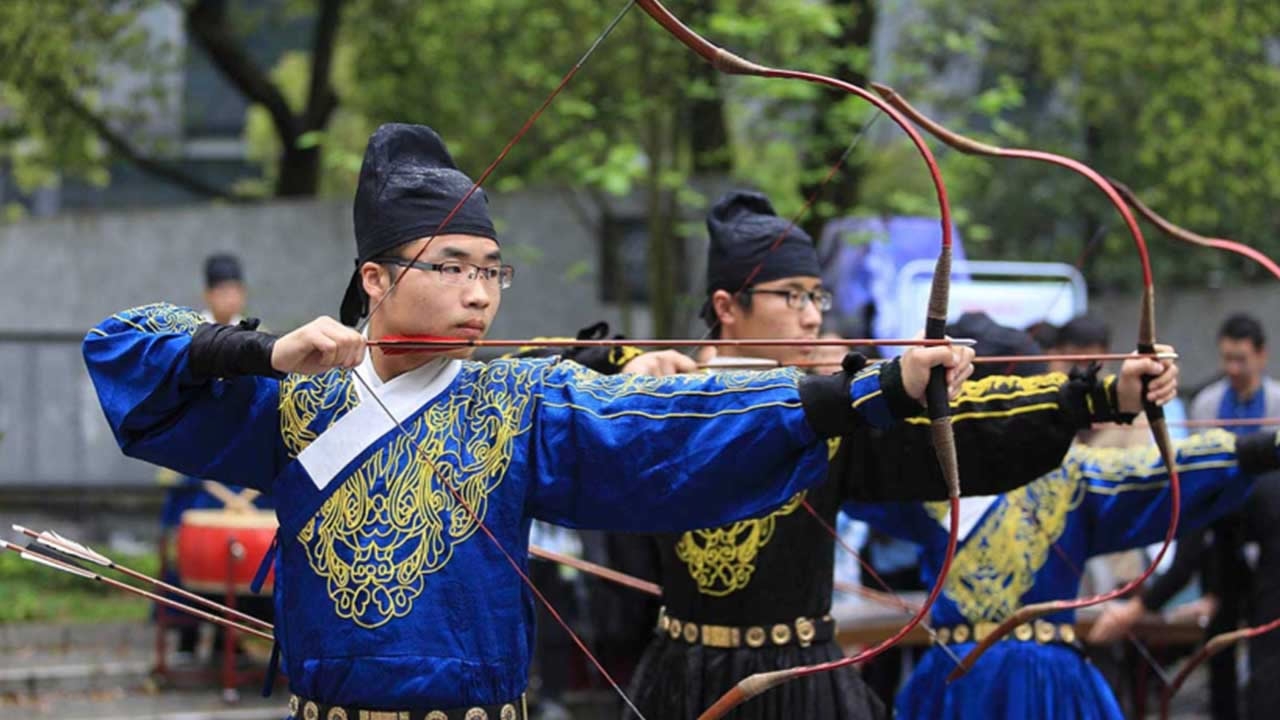
CFP Photo
New fashions for tomb sweeping
A quick look at online marketplaces will tell you the
offerings are no longer just paper money, joss sticks and candles, but replicas
of contemporary items like phone chargers, wifi routers, McDonald’s meals and
for a bit of entertainment… mahjong boards!
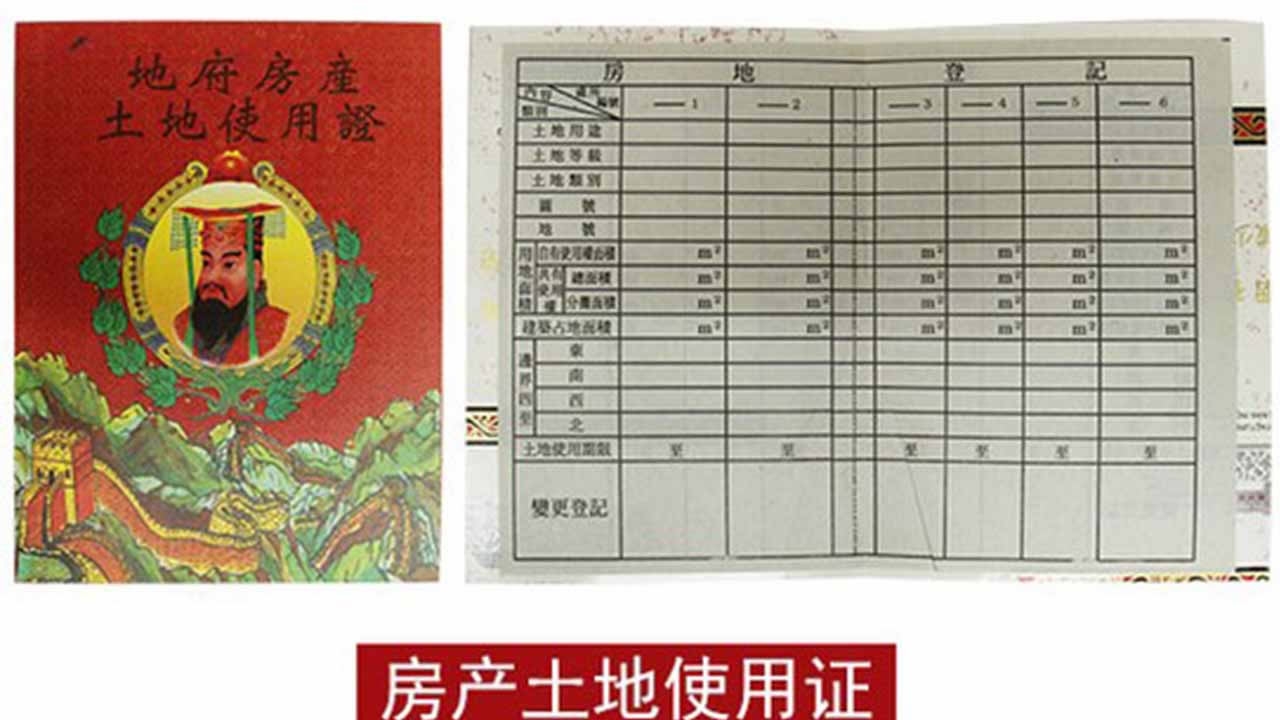
Screen shot of a home ownership certificate for the deceased for sale on Taobao, China’s biggest e-commerce platform
You may even find there are high-end offerings like villas, planes and luxury yachts.
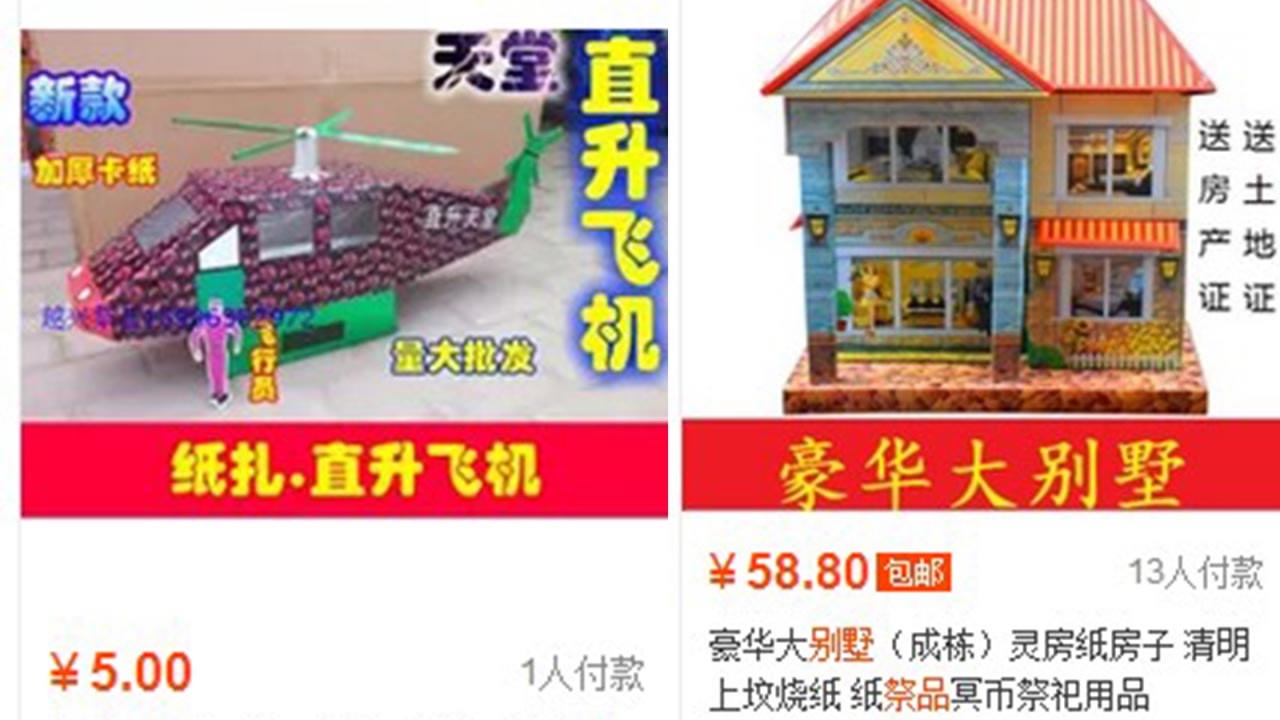
Screen shot of a paper helicopter sold on Taobao for 5 yuan (left) and luxury villa sold for 58 yuan (right)
Some cemeteries have even organized a fashionable online service called “remote worship,” under which customers can pay for cemetery staff to sweep, decorate and maintain the tomb for them. They will even cry on your behalf for the right price.
Through live broadcasts on platforms like social media app WeChat, you watch the whole process from anywhere. Some set the price of crying at 300 yuan for 10 minutes. Through several clicks, you can post messages to the departed.
While many young, time-poor Chinese have embraced these ways of doing things, others believe they are undignified.
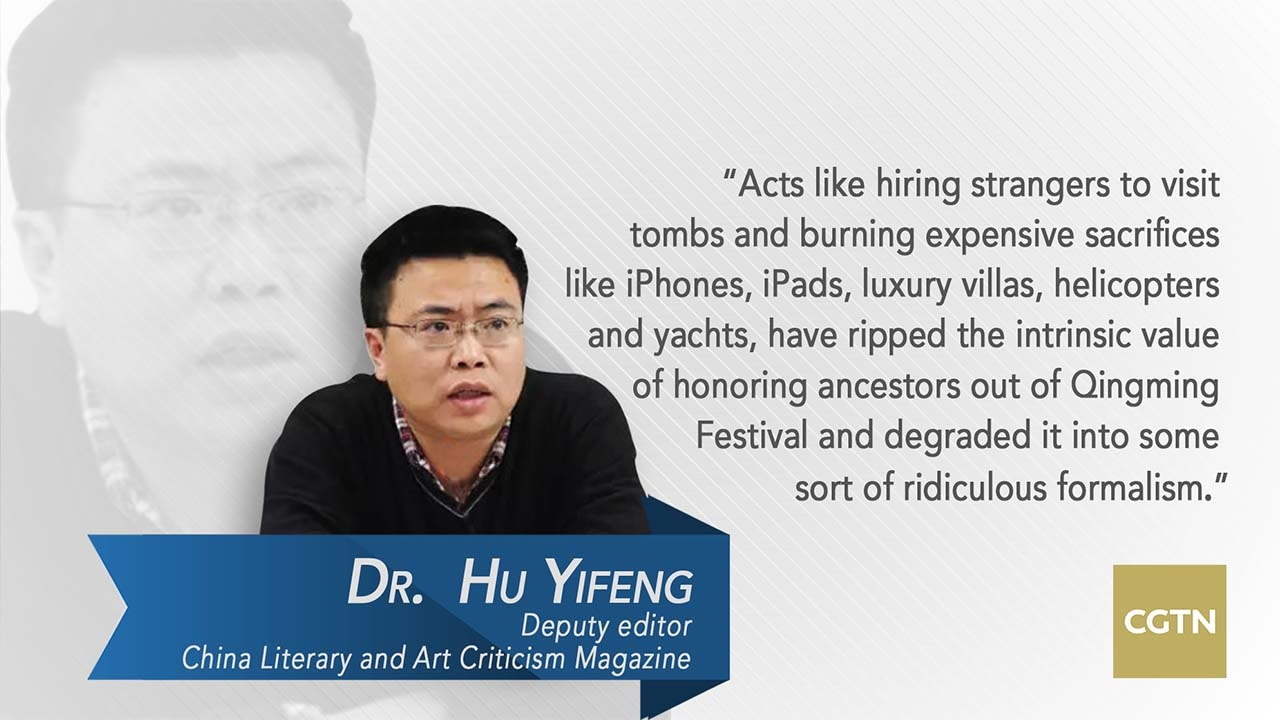
However Qingming is celebrated, it’s set to remain an important fixture in the Chinese calendar.









